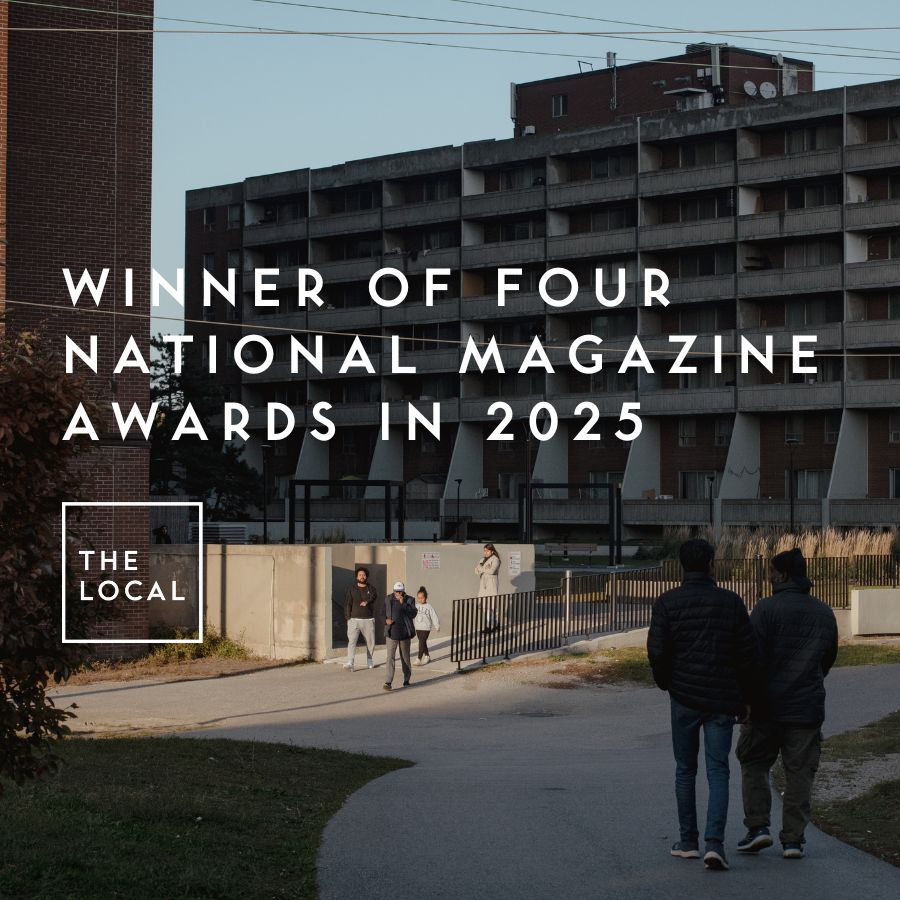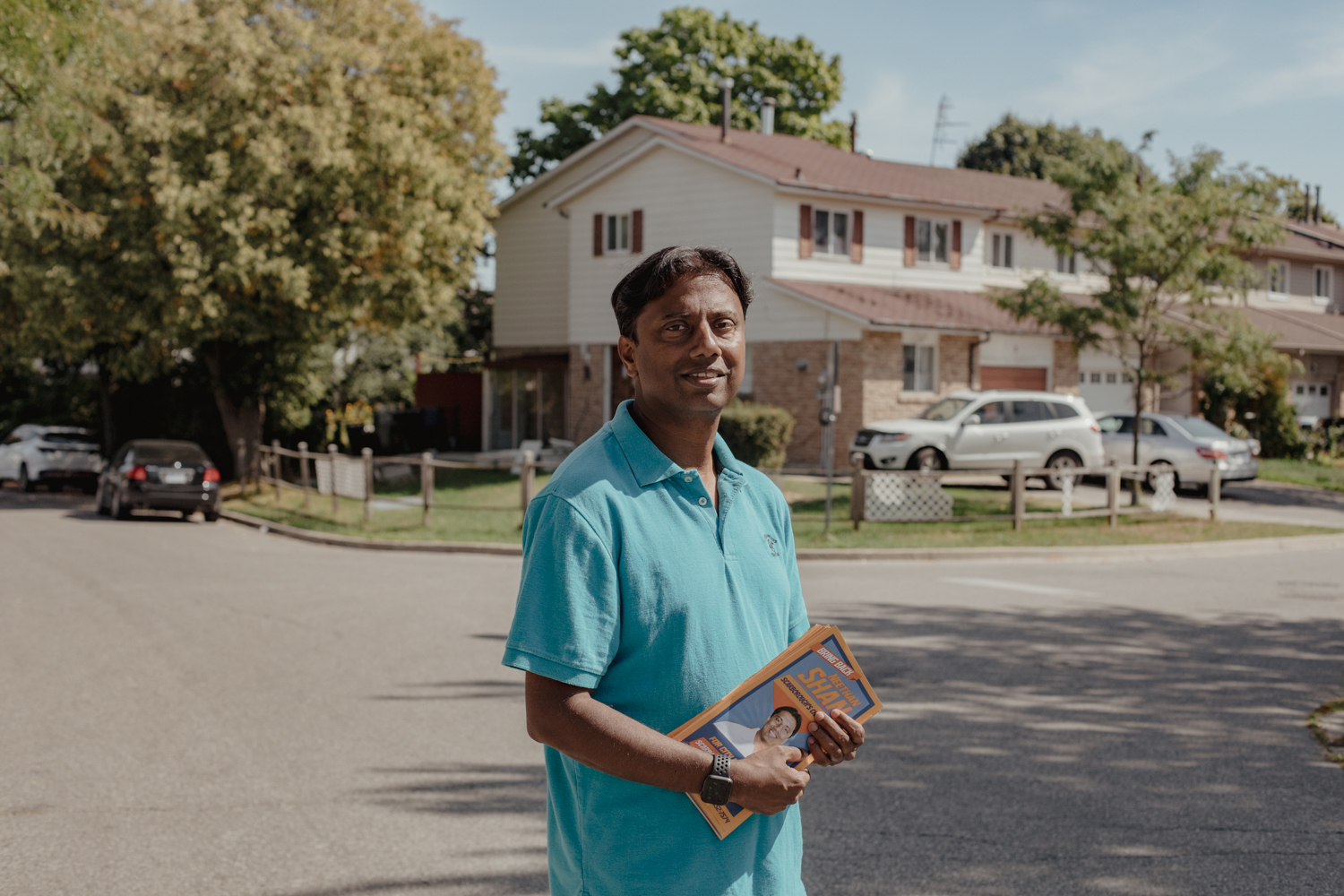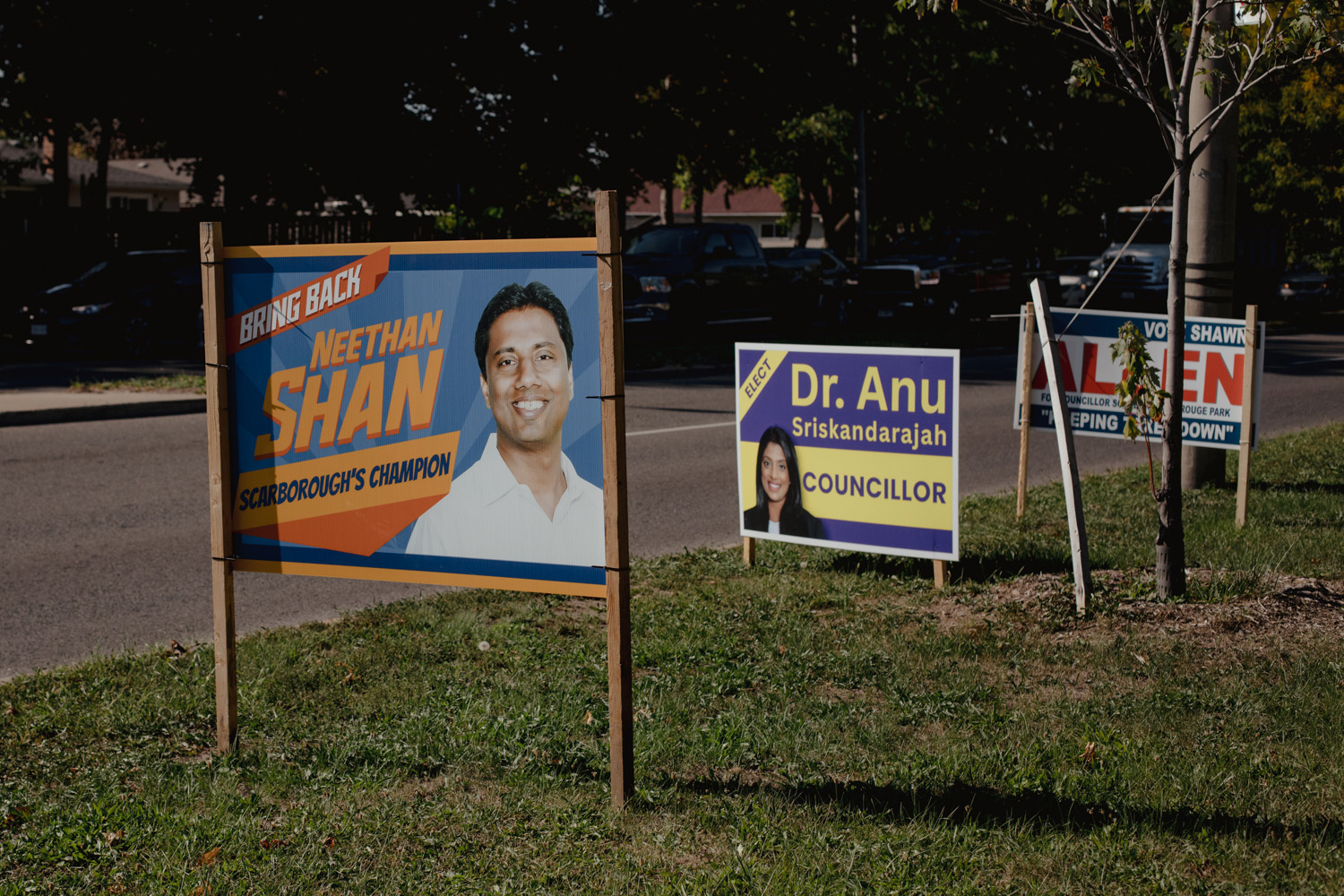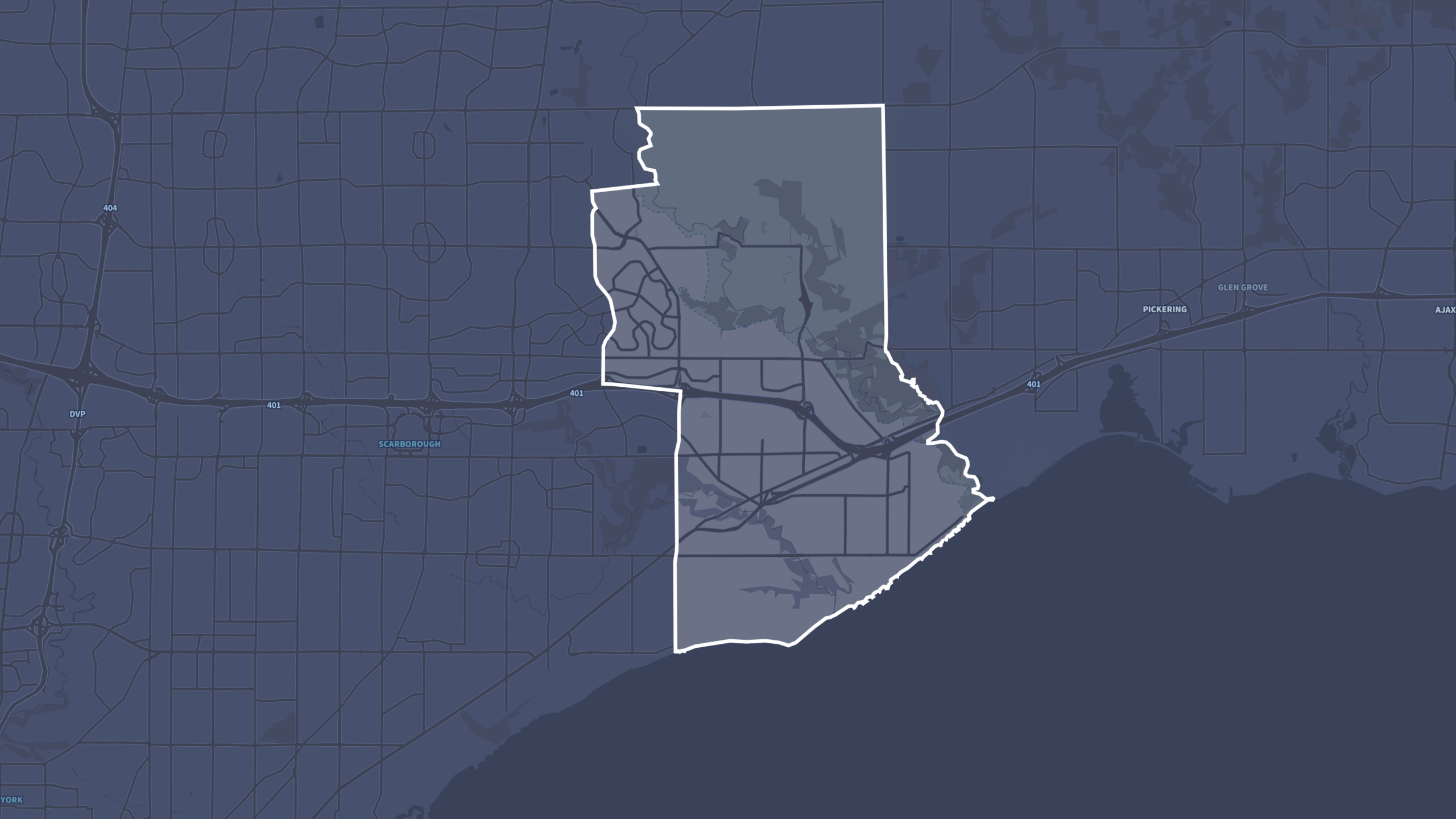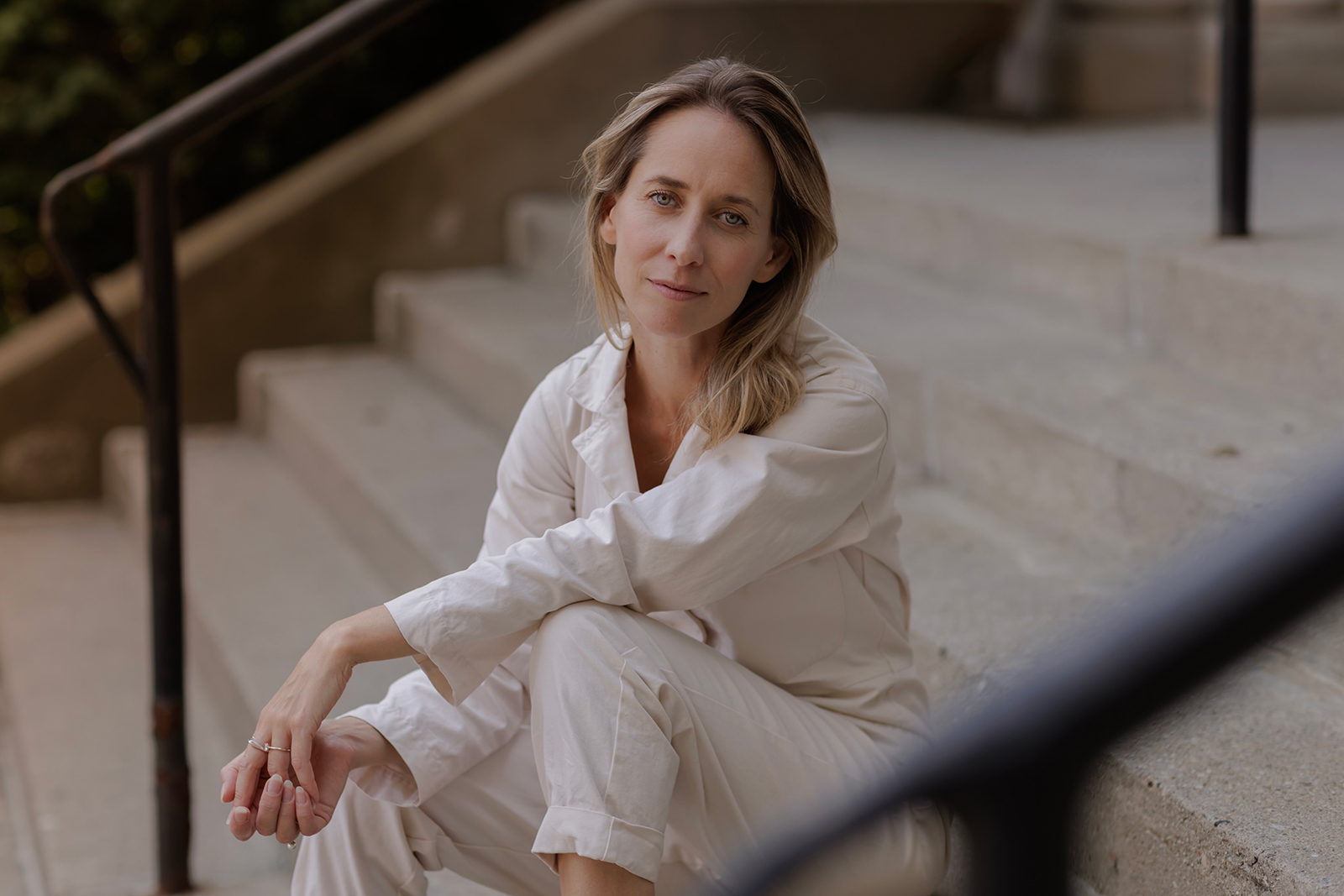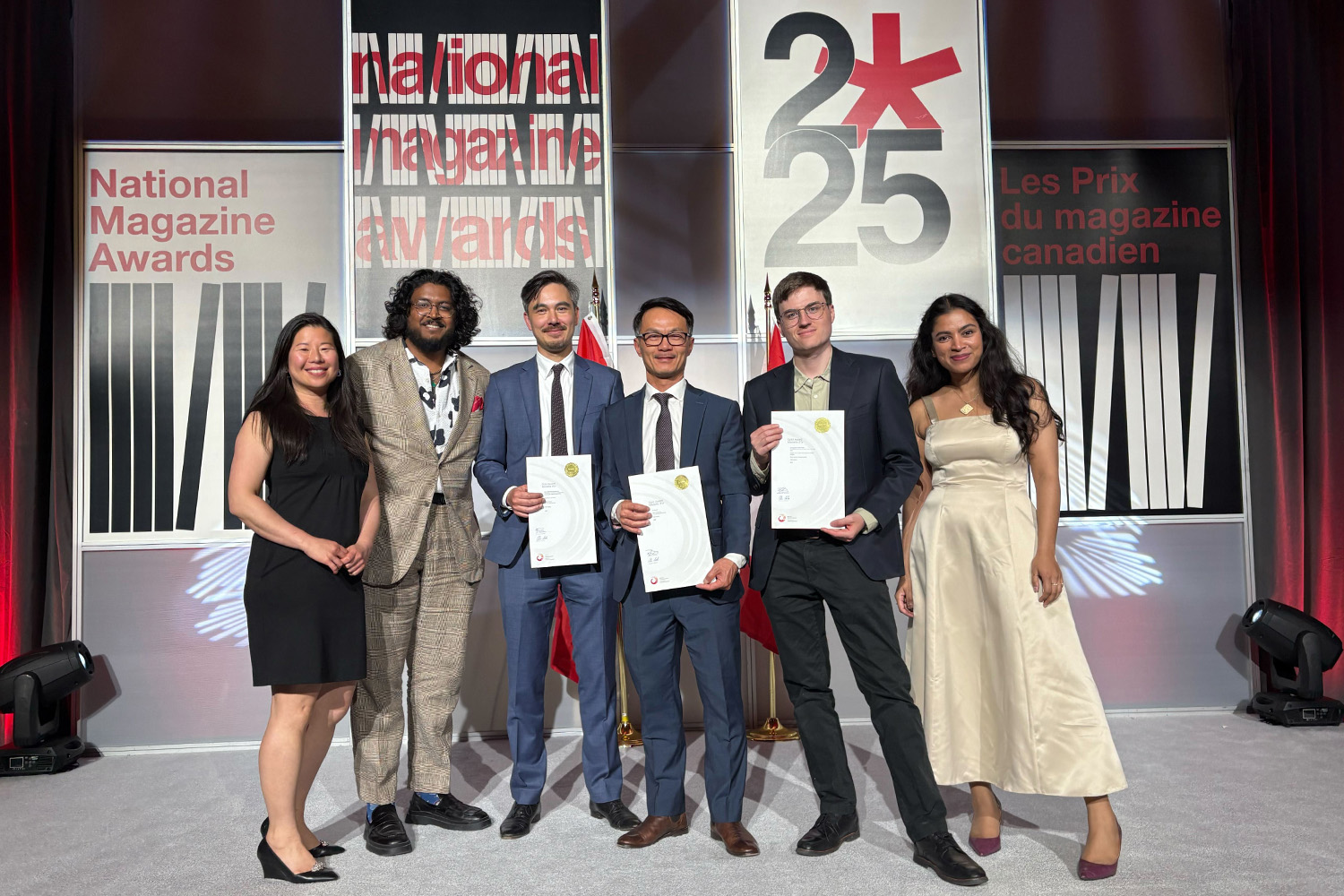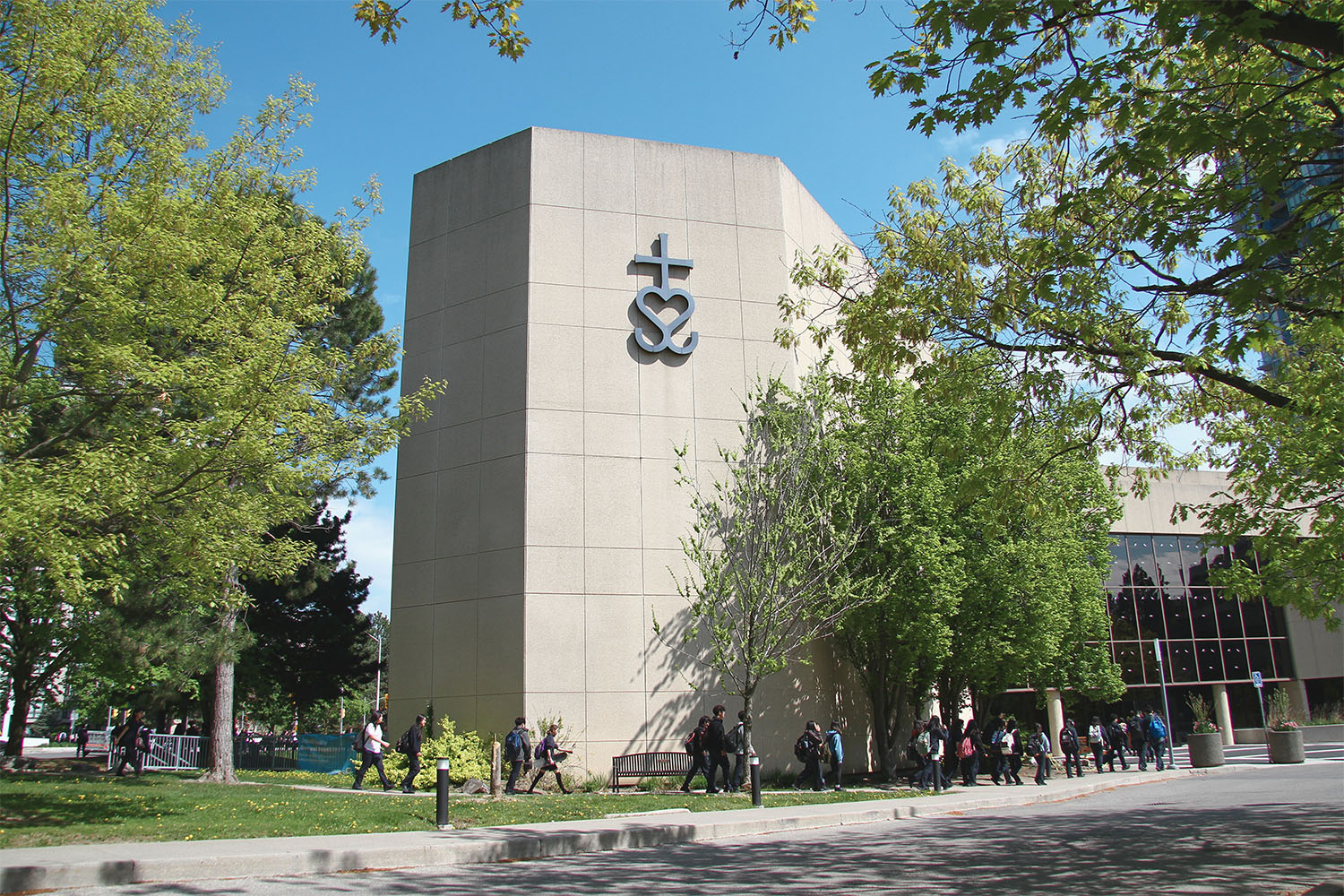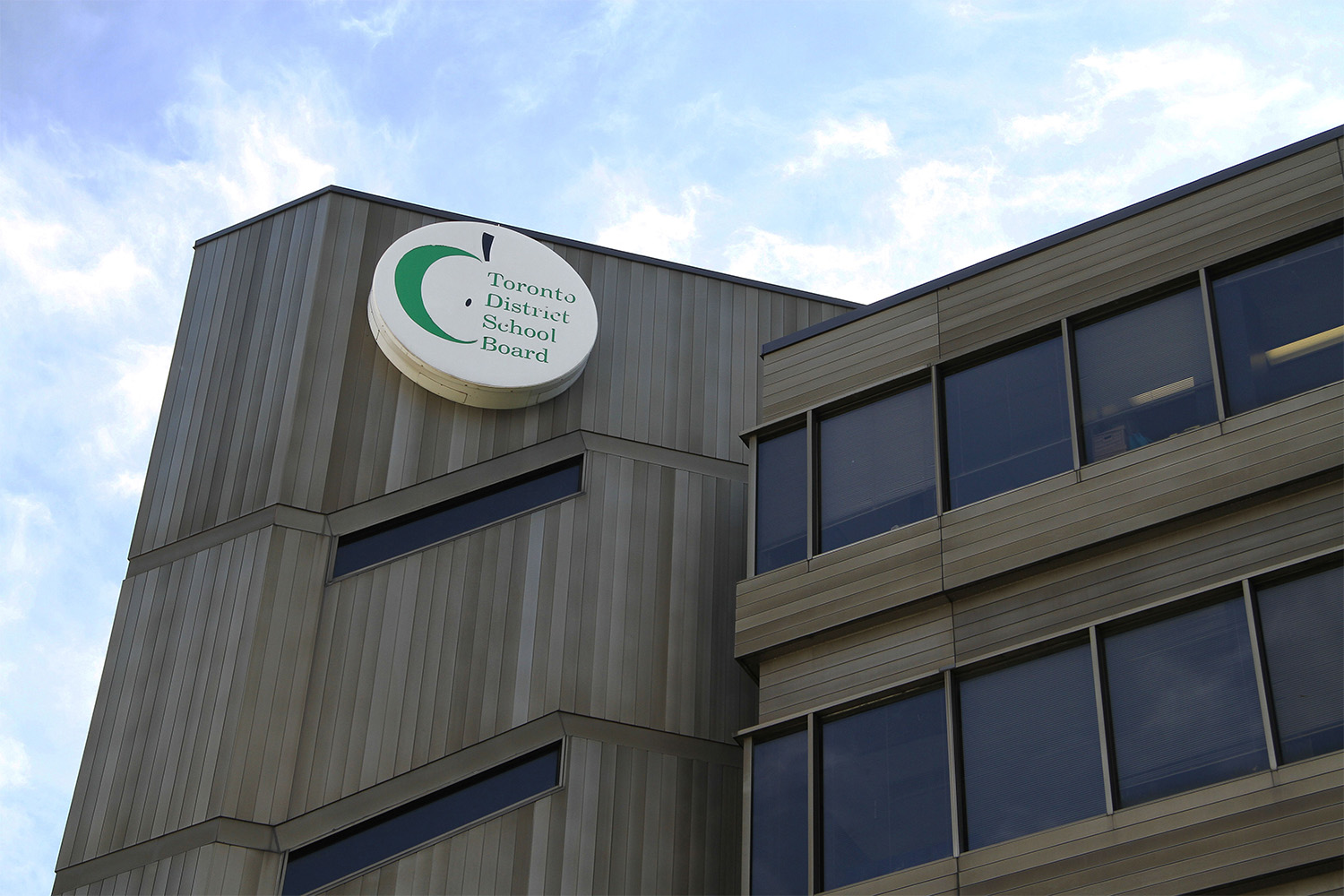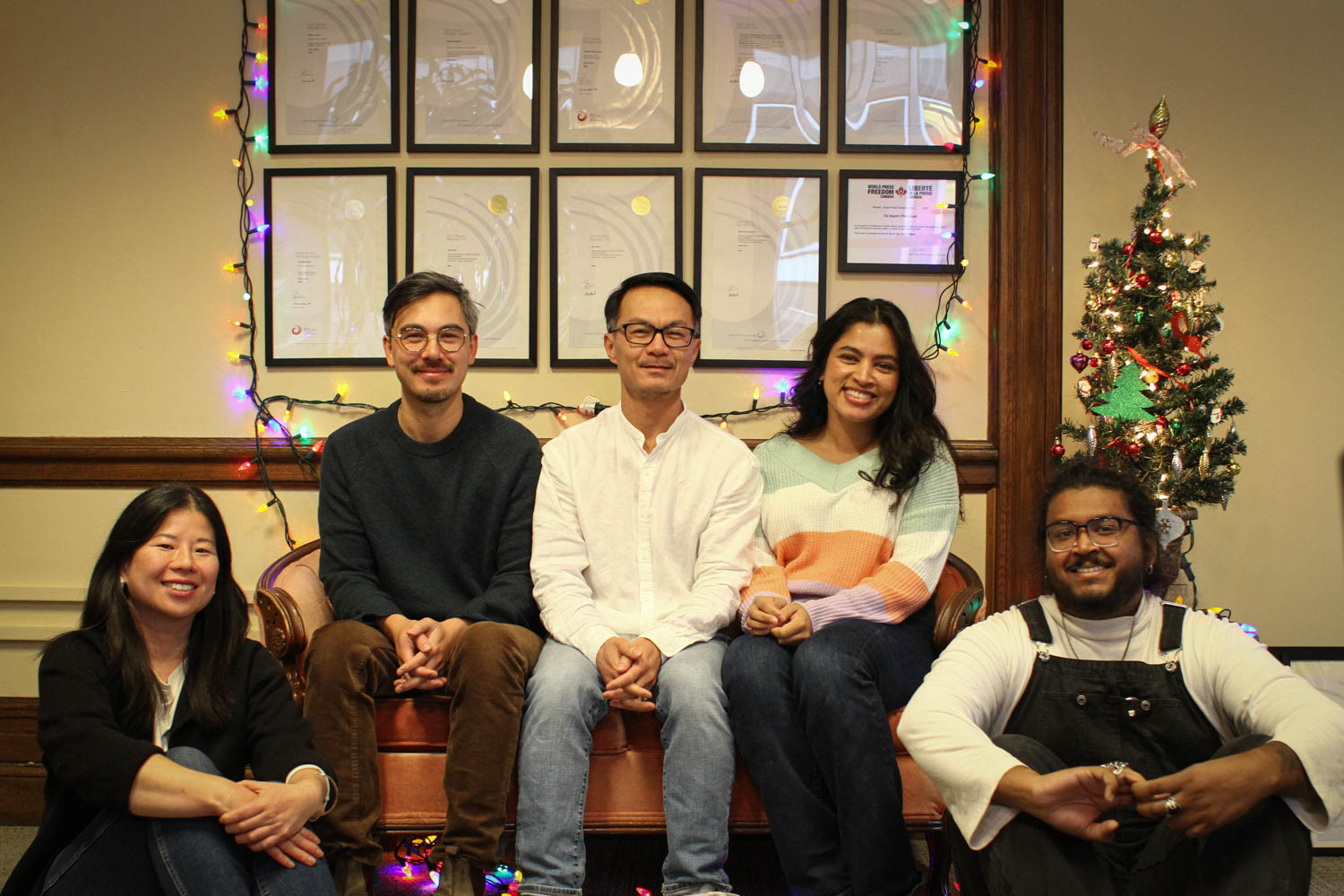

The Local turned five in 2024 and we kept busy this year. We published issues on everything from the so-called “green economy” to the economics of making art to aging. We covered predatory landlords and a contentious by-election, the closing of the Science Centre and the state of our public schools. We worried about the journalism industry and used power tools to customize our office furniture in increasingly elaborate ways. Per Local tradition, let’s get online and chat about the year that was.
Nicholas Hune-Brown, Executive Editor: OK, it’s the end of the year and we’ve put on our knitted sweaters, poured ourselves steaming mugs of cocoa, and are gathered around the flickering warmth of this Slack channel to reflect on the past 12 months. This was our five-year anniversary—a milestone birthday! What stories stood out to you guys from 2024?
Wency Leung, Reporter: Inori led us in a strong start to the year with her incredible feature, “Death and the Salesmen.”
NHB: Love a story that takes an existential question like how should one die? 🤔 and then just dives into the nuts and bolts of the business.
Inori Roy, Associate Editor: Such a fun story to work on, too. When we started, it was just a big question mark about why people were reselling Mount Pleasant cemetery plots worth tens of thousands of dollars on Kijiji! I didn’t know where it would end up taking me.
WL: At that point, we hadn’t even fully conceptualized our fall issue, Divided City, yet. Looking back, though, Inori’s feature examining how social inequities persist even in death was foreshadowing what was to come.
Craig Madho, Manager of Operations: One piece that stands out for me is Aparita Bhandari’s feature, “From International Student to Popstar.” Such an interesting story, but also one that was far-reaching—we had folks from all over the world reading that. I also have to say that the service journalism story outlining senior rebates and benefits we released at the beginning of the year is awesome, and one that I still get emails about from folks trying to navigate the complexities of elder care.
Tai Huynh, Editor-in-Chief: The entire Art + Money Issue, which Nick willed into existence, was so good. The central question, “Can you make art and still make a living in Toronto?” came at such a critical moment in Toronto, with simultaneous crises at so many arts organizations in the city—TIFF, AGO, Hot Docs.
NHB: I love that we figured out how to do a Local culture issue, and that we were able to include a blazing hot Soraya Roberts take that begins “I sometimes think that Canada is the worst place in the world to be an artist” and only gets spicier from there. The stories I keep coming back to, though, are probably from Wency’s series on cuts to education. Reading them as a parent navigating the school system, I’m constantly having the (sometimes unpleasant) experience of going “Oh…so that’s why that’s like that.”
IR: I think for me the story that defined not only the year but this particular political moment in the province was “Another Year, Another Encampment, Another Eviction” by Brennan Doherty and Nick Kozak. That story felt so uniquely compassionate and comprehensive, and despite being years in the making, it was also responsive to policy changes happening around safe consumption sites and real-time evictions.
NHB: If people are 500 words into The Local holiday roundup and haven’t read that brilliant piece, please go back and read that piece!
TH: Or look at the incredible photos at the very least.
NHB: Nick Kozak spent years photographing people in encampments for that story, and Brennan spent much of the summer reporting it. I didn’t do anything nearly that involved this year. What was the most difficult story you guys worked on?
WL: For me, I’d have to say my story on GFL’s environmental track record. It meant learning the ins and outs of what happens to all our waste.
TH: Well, I only did one story this year, about life expectancy in Toronto neighbourhoods. But it did take me nine months, and the data was really hard to get, and we were really close to running out of options before it came together.
WL: So worth it!
IR: It was interesting to have another unexpected election and Candidate Tracker this fall in Don Valley West. It’s always a challenge to get into the nitty-gritty of local politics, but we’ve also got the Tracker system down to a science, thanks to a great team of freelancers. Our readers can rest assured we’re already thinking about how we can apply the lessons learned from our municipal politics coverage to the federal and provincial elections happening next year.
NHB: Do readers want to know about the publishing side? Craig, I know you just bought a series of drill bits and grommets and power bars to transform our second-hand dining room table into the Ultimate Office Hub, but are there any other important business developments readers should know about?
CM: On the publishing side I think we are continuously trying to stay ahead of the curve. On one hand, this year we’re finally seeing the light at the end of the Online News Act tunnel, which is the $100M fund from Google being disbursed to Canadian publications. But on the other hand, we are approaching a federal election that may change some of the grants and tax breaks available for publications like us.
TH: Craig, sucking all the joy out of the season with a Poilievre policy statement.
CM: Maybe I’ll leave the publishing side to you Tai. Leave the drilling to me 😎
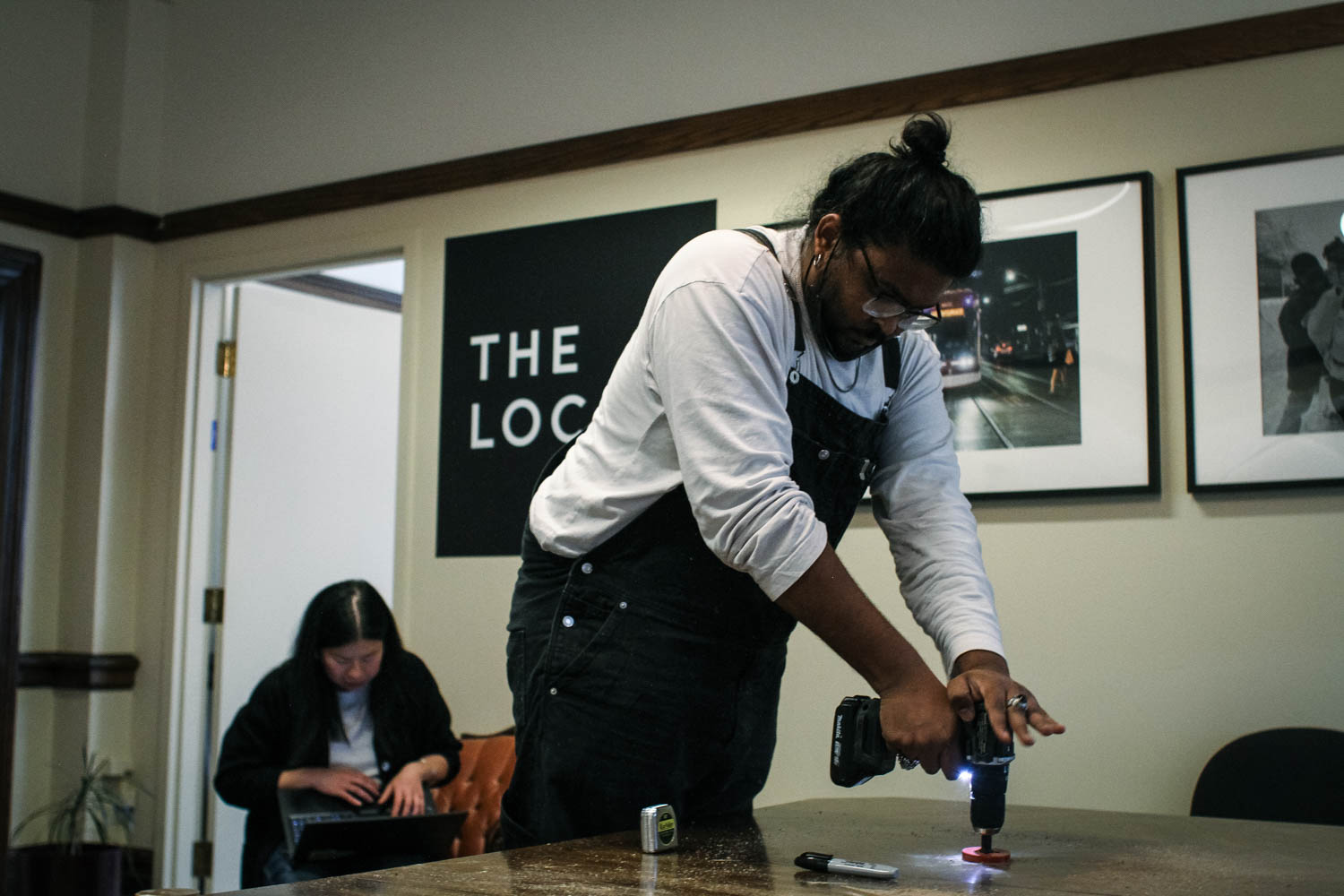
TH: The most impressive thing, I think, has been the number of recurring donors, which shot up nearly 200 percent this year. And our very first supporters—Wellesley Institute, United Way, YMCA, Toronto Foundation, Metcalf Foundation—are still with us, five years later. That kind of commitment to our work is incredible to see.
CM: I think another big win on the publishing side was being able to finally have an in-person event at our office, where supporters could come and meet us and the journalists we work with.
IR: Still thinking about the amaretti cookies from that night!
NHB: Alright, lightning round to end things. Any last suggestions for pieces readers may have missed? I’ll just say that, as a publication that aims to publish the best long-form writing in the country, any year we get a feature by the great critic Carl Wilson on the history of criticism and a gorgeously told eulogy of the Ontario Science Centre by Alison Motluk is a good year.
WL: Always cool to see the work done by our bright, keen fellows published. Future Carl Wilsons and Alison Motluks!
CM: Yeah, I would say if they haven’t checked out the stories by this year’s fellows they should. Alice Boyle wrote a great exploration of the spaces queer, racialized Torontonians are making for themselves. “The Creeping Threat to Trans Rights in Toronto” by Matthew Molinaro is a vital look at the growing anti-trans sentiment in Toronto. And Sam Rosati Martin wrote a fantastic piece on how environmental policy is being used against the unhoused. (And if any young journalist out there wants to be a fellow, keep an eye out in the new year for applications!)
TH: The Local is mostly a quarterly publication, but this year I think we published more one-off stories than ever. One of my favourites is Nick’s “The Transit Boss Torontonians Love to Hate” about Phil Verster, the man who was, until this month, at the helm of the largest public works program we’ve seen in decades but no one really knew much about.
IR: If you haven’t caught it already, Wency’s “How Decades of Underfunding Eroded Toronto’s Schools” is such a great primer to the crisis in education in the city, and really sets you up to read through the rest of our education coverage with an extra keen eye.
NHB: OK, time to wrap up and pivot from editing to figuring out what recipe to use for our office cookie exchange with The Narwhal’s Ontario Bureau (everyone’s proposed cookies are getting aggressively fancy). Tai, any last words from this year before we head into what looks like a tumultuous 2025?
TH: Indeed. With Trump back in the White House and possible provincial and federal elections on our side of the border, the level of uncertainty is off the charts. In 2025, readers can expect deep dives into things like immigration, and Ontario and national politics—big and often polarizing issues that we want to unpack with nuance and cover from uniquely local perspectives. Sure, we haven’t done provincial and federal elections before, but we’ve done plenty of municipal ones, and I think it’s time. For a small newsroom, though, the hazy timelines around when elections might occur is putting me on edge. When do we schedule the issues? When’s a good time to go on vacation? Are we going to die trying to cover all of this?
OK, that’s too negative a thought for the holidays. 2025 will be awesome. Why wouldn’t it be?
